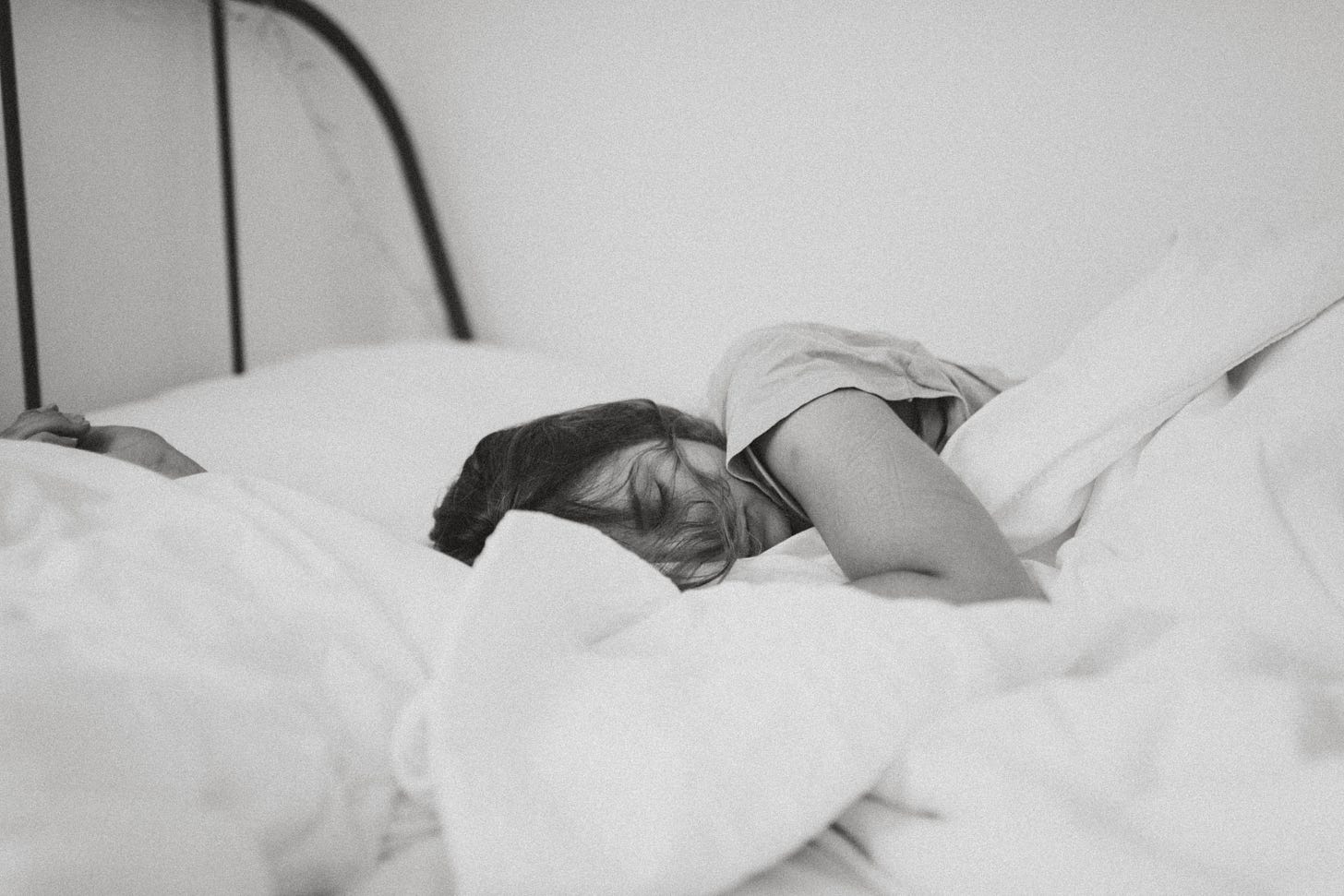A month ago, I was medically diagnosed with ADHD.
A month ago, ADHD was subject to debate across the media.
A month ago, the government discussed more funding for ADHD and Autism diagnostic services.
February was BIG, a symbiosis of personal recognition, governmental acknowledgement and societal ridicule.
It’s burnt me out
When, at the end of my ADHD assessment, the doctor said ‘I feel confident in diagnosing you with ADHD’ everything dimmed. I could see him on the screen in front of me, but I could barely hold onto his words as he spoke about what this meant and what medications were available.
‘You don’t have to decide now…’ he said.
Snap. Back to reality.
This was real and it all happened so quickly. One moment I was self-diagnosed, the next a medical professional affirmed that diagnosis and was offering me help and support. Someone, who could make a difference to my life, was finally recognising my life long struggles after self-diagnosing nearly 18 months before. It was all too big to comprehend. I could feel myself crumpling.
For over a year I had been fighting to get to this point of medical diagnosis via failed and unsent referrals, forms to be completed and lost forms (not by me… by the medical system designed to help me) to be re-completed, phone calls chasing and checking in, and memories to be trawled up for yet more forms… It had all led to this moment. All the fight and energy I used to get me me here left.
As I was refining my feelings and trying to run on empty, the media had seemingly banded together to question the legitimacy of ADHD diagnosis, further adding the the depletion of my tank. The Daily Mail called it the ‘latest ‘must-have’ mental health condition’, insinuated that diagnosis was only given because it was paid for, could be cured by getting off your phone, disparaged the validity of self-diagnosis, and stated ADHD was over-diagnosed.
The Times lead with ‘ADHD doesn’t add up’, continuing to state ‘if half the country starts demanding ‘treatment’, then the whole system collapses.’ Their piece included quotes from a so-called medical professional who stated ‘we don’t need more people to be more aware. We can’t deal with the ones who are already aware.' And, similarly to The Daily Mail, also mentioned that smartphones could be the cause of ADHD, adding that the ‘best treatment might be to disconnect from their phones for a few hours a day’ (Sir, I routinely do this… Quelle surprise, I still struggle.)
The BBC then launched a video debating the validity of self-diagnosis. While objectively not as deeming as the articles listed above, it did add to the rhetoric of questioning the validity of self-diagnosis, rather than positioning self-diagnosis as a valid tool towards medical diagnosis after GP’s fail to diagnose ADHD and even misdiagnose it frequently.
There were other articles. I stopped reading them.
These media pieces, aside from the blatant ableism and misinformation, have a few things in common. They failed to:
Mention the government debate that happened on February 6th, which found an urgent need for more funding for ADHD and Autism diagnostic services
Call for funding of neurodivergent and mental health support services (despite some of them directly mentioning the state of current services, which have wait times of up to 7 years)
ADHD is a disability, and there are few other disabilities where the media could so blatantly question it’s existence, suggest inadequate cures and even question the validity of medical diagnosis (by suggesting it is ‘over-diagnosed’).
As a neurological condition, that’s often confused and mislabelled as a mental health condition (although ADHD, especially undiagnosed ADHD does co-occur with mental heath issues), ADHD has become the scapegoat of disability. It’s often brushed off by those who don’t understand it as a subjective spectrum that everyone is impacted by to some extent.
It’s unsettling because if media can so blatantly do this to one disability without recourse, at some point other disabilities will fall subject to similar reprisal in the future - unless our societal views on disability change.
The media is largely owned by billionaires, propped up by journalists from upper-class families with private educations. That’s not a conspiracy theory by the way… Over 40% per cent of the UK’s most influential editors and broadcasters are privately educated. as. Main stream media is a system of right-leaning political ideology, and with 12 years of austerity under the governments belt, with further cuts ‘needing’ to be made, services that support disabled people are just something else to siphon money from or avoid re-investing into. If public sentiment towards disability runs towards the hateful and despairing, encouraged by media, then it becomes easier and more acceptable for the government to withhold funding to much needed services.
Where better to start than a neurological condition that is misunderstood, has an influx of new late-diagnosis and relies on self-diagnosis as a gateway to referrals?
In case my stance is unclear… self-diagnosis is valid. Without self-diagnosing I don’t know if I would ever have been medically diagnosed. Having been seeing Drs since the age of 12, I’m certain I would have faced at least another 10-25 years being batted with anxiety and depression diagnoses (many women are given an ADHD diagnosis during menopause), as well as being prescribed medications that have consistently not worked. Media and public sentiment don’t care about this side of ADHD. They care more about if our diagnosis comes from a designated authority, never mind that the same authority misdiagnoses us, and gives us the wrong treatments ALL THE TIME!
The backhander is that, the same people raising questions about the validity of self-diagnosis and how we MUST turn to medical professionals, will also spew about the ‘unnecessary’ increase in medical diagnosis, adding to the ‘over-diagnosis’ myth, the second we reveal we do have medical diagnosis. We literally can not win, either way the validity of our disability is questioned.
Is it not enough that those with undiagnosed/late diagnosed ADHD face barriers throughout society, live undiagnosed for years, manage their struggles as personal failings, face underemployment and discrimination in the workplace, are more likely to have addictions, poor mental health and experience suicidality, as well as having comorbidities that can add to disability needs, and face a serious lack of support and aftercare once diagnosed? Now we also have to face a barrage of misinformed and misleading media articles written by people who know little about the experience of ADHD and perpetuate ableism?
It’s tiring.
But, no matter how burnout it makes me to watch our access to systemic joy be depleted, bad journalism nor public sentiment nor shitty governments can change that my life changed for the better the moment I learned I could was neurodivergent and self-diagnosed. That’s something they can not take away or steal.
This section will appear at the bottom of every newsletter, a space to share and celebrate joyful moments from the week. For now, here’s mine.
Shadow and Bone is back for a second series on Netflix (I’m a fantasy & dystopia girlie), I loved the books, I loved the first series. Bring it on. My burnout self is ready for a binge.
Speaking of binge and fantasy, my partner and I have been watching Lord of the Rings. It’s a winter tradition that we watch it every year, usually when it’s cold and wet outside, so when it snowed last week I knew it was time.
The snow. If you follow me on Instagram, you’ll know I did not stop sharing little snippets I had taken while playing in the now. It felt good to embrace my inner child and shun societies expectations of what ‘adult’ looks like.
I’d love to revel in your joy too, so share any joy you've recently experienced in the comments. Over to you.
Chelsea🐌







Love this. My little moment of joy was reconnecting with an old friend and laughing at things I was worried about. Grateful for those moments.